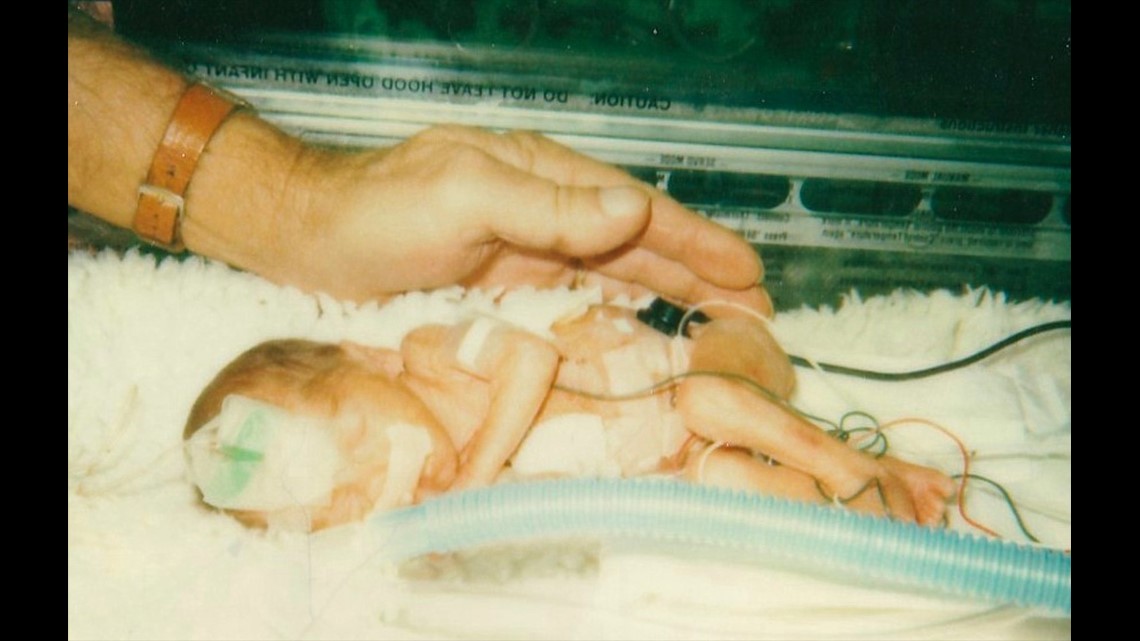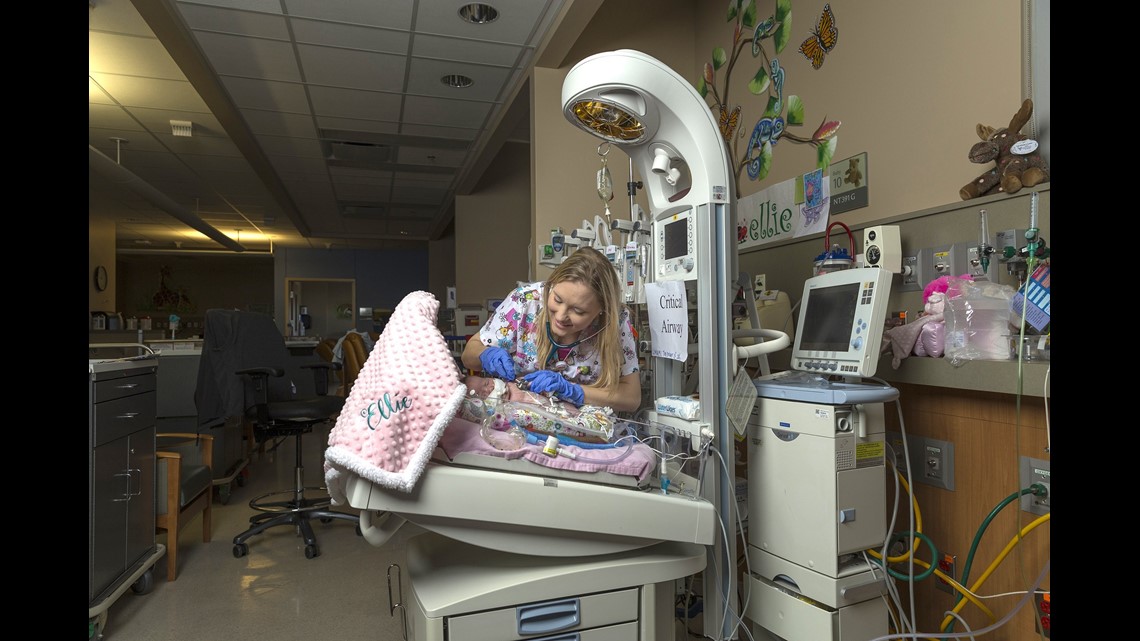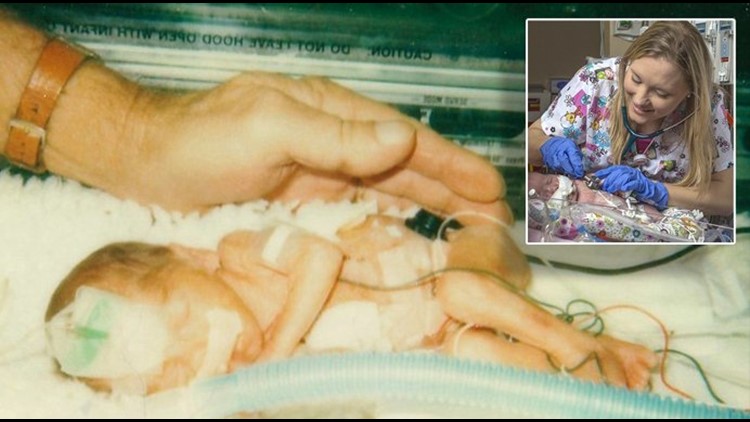TEMPLE, Texas – When Tammy Lewis was born, she was 3½ months early and weighed in at only 1 pound 4 ounces. Her family faced the harsh reality their newborn’s survival rate was 5-10%.
But Lewis beat the odds and now, 34 years later, she works in the same NICU that saved her life.
“I was the smallest surviving baby in the state of Texas, at the time,” Lewis said. “I was born at 24 weeks. Normal gestation is 40 weeks.”


Lewis spent the first 3½ months of her life in the NICU at Scott and White Hospital, now named McLane Children’s Medical Center Baylor Scott & White. She was a micro-preemie and had tubes hooked up to her to help her tiny lungs breathe.
Years later, she works alongside some of the same doctors and nurses who treated her as an infant.
“I wanted to be able to give back to the patients and families in the same situation that I was in,” said Lewis.
When deciding what career she wanted to pursue after high school, it was between teaching and the medical field.
“Once I started researching the medical field, I talked to a program director and immediately fell in love with it,” said Lewis.”This is where God was leading me to be.”


in 2009, Lewis started working as a respiratory therapist at McLane, in Temple, Texas, which serves central Texas. It’s home to a level four NICU, which is the highest level of care.
In her daily job, she connects ventilators and breathing tubes, just like the ones that helped her breathe as a baby.
“As I work, I get daily remainders of how blessed I am to be here today,” she said.
Lewis has two children, 6 and 3, but neither was a micro-preemie. “My oldest threatened to be a preemie at 37 weeks.”
As she treats patients, she brings hope to the families as she shares her story of survival and motherhood with them.
“You see parents get rough news and need some brightness and hope in the day,” she said. “There are success stories and I am one of them.”
The hospital features her on its “Hall of Hope,” where it highlights babies with difficult journeys who have survived. Lewis said workers in the NICU become like a part of the patients’ families, because they work so closely monitoring the infant, all with the goal of getting the babies healthy enough to go home.
“There are lots of long hard days that everyone puts in and it’s very rewarding to see them grown up.”
A highlight of her work, Lewis said, is seeing those babies come back to visit. She said that process has come full circle for the doctors and nurses who took care of her.
“It doesn’t get much better than to take a 1 pound baby and then watch it grow up to a little human being.”



